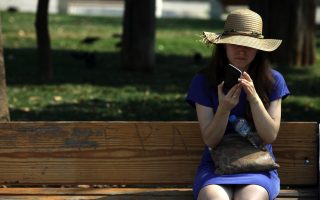Internet Archive loses court appeal in fight over online lending library

SAN FRANCISCO – When libraries across the country temporarily closed in the early days of the pandemic, the Internet Archive, an organization that digitizes and archives materials like webpages and music, had the idea to make its library of scanned books free to read in an online database.
The question of that library’s legality became a long-running saga that may have finally ended Wednesday, when an appeals court affirmed that the Internet Archive violated copyright laws by redistributing those books without a licensing agreement.
The decision, by the 2nd US Circuit Court of Appeals in New York, is a victory for the major book publishers that brought the lawsuit in 2020, and could set a precedent over the lawfulness of broader digital archives.
“The defendant attempted to do what no one had done before, which was to call unauthorized distribution of entire books ‘lending’ without permission,” said Maria A. Pallante, president of the Association of American Publishers, which helped coordinate the industry response. “Obviously we are delighted” with the decision, she said.
A federal court ruled against the Internet Archive in March 2023, and the archive removed many works from its online library of books. It appealed the decision last September.
A final appeal could potentially be taken to the Supreme Court. In a statement, the Internet Archive said it was “reviewing the court’s opinion and will continue to defend the rights of libraries to own, lend and preserve books.”
In its appeal, the nonprofit argued that its Free Digital Library was protected by so-called fair use laws, and that scanning the books was a transformative use of the material done in the public interest. The court firmly rejected that claim.
To construe the Internet Archive’s “use of the works as transformative would significantly narrow – if not entirely eviscerate – copyright owners’ exclusive right to prepare derivative works,” the decision said. “Were we to approve IA’s use of the works, there would be little reason for consumers or libraries to pay publishers for content they could access for free on IA’s website.”
The library existed long before the pandemic, utilizing a system it called “digital lending,” which allowed users to read copies of scanned books one at a time. The Internet Archive threw out the viewing limits during the pandemic.
In a petition to publishers to reverse the lower court’s decision, the Internet Archive said it had removed more than 500,000 books from its public archive.
“People are worried about book bannings and the defunding of libraries, but I don’t know that there is really an awareness of what’s going on in the movement toward license-only access to electronic material,” Brewster Kahle, the founder and digital librarian of the Internet Archive, said in an interview Wednesday.
Libraries are “not just a Netflix reseller of books to their patrons,” he added. “Libraries have always been more than that.”
Unlike traditional libraries, which pay licensing fees to publishers to make their books available for lending, the Internet Archive acquires copies through donated or purchased books to scan and put online. The nonprofit is also known for the Wayback Machine, a popular database of past webpages.
Pallante said she hoped the ruling would have implications for artificial intelligence companies that scrape data from book publishers and elsewhere for their products, potentially undercutting a publisher’s so-called derivative rights of what is done with its works.
“It’s not OK to just usurp those derivative rights,” she said.
This article originally appeared in The New York Times.






